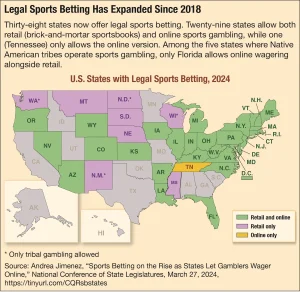Tax Implications and Financial Planning for Major Prize Winners: Your Windfall Survival Guide

So, you’ve hit the jackpot. The confetti has settled, the oversized check is in your hands, and reality is starting to creep in. It feels like a dream, right? But here’s the deal—that sudden wealth comes with a whole new set of rules, especially from the IRS. Honestly, navigating this new landscape can be more complex than picking the winning numbers.
Let’s dive into what it really means to win big, financially speaking. We’re not just talking about lump sums and annuities; we’re talking about a complete life overhaul. And it all starts with understanding the tax implications and crafting a rock-solid financial plan.
The Instant Tax Bite: What the Government Takes First
Before you even think about that dream house or a round-the-world trip, you need to understand the immediate tax implications of winning a major prize. The moment you accept that prize, its value becomes taxable income. It’s not a suggestion; it’s the law.
Lump Sum vs. Annuity: A Tax-Personality Test
This is your first and one of your most crucial decisions. Most lotteries and game shows offer two main payout options.
| Payout Option | What It Means | The Tax Angle |
| Lump Sum | You get one giant payment, right now. Sounds great, but it’s usually a smaller amount than the advertised jackpot. | The entire amount is taxed in the year you receive it. This can easily push you into the highest federal tax bracket (37% for 2023). You get all the tax pain at once, but then you have the whole nut to invest. |
| Annuity | You receive the full jackpot amount, but it’s paid out in yearly installments over 20 or 30 years. | You’re only taxed on each annual payment as you receive it. This can help manage your tax brackets, potentially keeping you in a lower one. It also acts as a forced savings plan, preventing a massive, impulsive spending spree. |
Which is better? Well, there’s no one-size-fits-all answer. The lump sum gives you immediate control. The annuity? It’s a form of financial protection. It’s like choosing between eating the entire birthday cake tonight or having a slice every day for a month. Both are tempting, but one requires more discipline.
Withholding: That First Chunk They Take
When you get your prize money, the payer is required to withhold 24% for federal taxes. But—and this is a massive ‘but’—for anyone winning a significant amount, that 24% is almost certainly not enough. The top federal tax bracket is 37%, and that doesn’t even include state taxes, which can be as high as 13% in places like California or New York. You could be looking at a total tax bill of nearly half your winnings.
So, that initial withholding is just a down payment. You will likely owe a staggering amount more when you file your return. It’s a shock that catches many winners off guard.
Beyond the Initial Win: The Ongoing Financial Maze
Okay, you’ve survived the initial tax hit. Now what? Your financial life just got infinitely more complicated. It’s not just about having money; it’s about keeping it and making it work for you.
Your Immediate Post-Win Action Plan
Before you do anything else, you need to secure your position. Think of it as financial triage.
- Stay Anonymous (If Possible): Check your state’s laws. Remaining anonymous is the single best way to protect yourself from scammers, long-lost relatives, and every charity on the planet. It buys you the quiet space to think.
- Secure the Ticket: Sign the back of that ticket and put it in a bank safety deposit box. Immediately.
- Breathe. Don’t Rush: You typically have several months to claim your prize. Use that time. Do nothing drastic. Seriously.
Assembling Your Financial Dream Team
You cannot do this alone. Trying to would be like performing surgery on yourself. You need to build a team of fee-only, fiduciary professionals. That “fiduciary” part is key—it means they are legally obligated to act in your best interest.
- A Tax Attorney or CPA: Not just any accountant. You need someone who specializes in high-net-worth individuals and complex tax situations. They’ll help you navigate the labyrinth.
- A Financial Advisor/Planner: Someone to help you build a long-term strategy. This isn’t about picking stocks; it’s about asset allocation, trust funds, and generational planning.
- An Estate Planning Attorney: To help you draft wills, set up trusts, and ensure your money goes where you want it to, while minimizing estate taxes down the line.
The Long Game: Estate and Gift Tax Considerations
Suddenly, you have to think about legacy. How do you pass this wealth on without the government taking another huge bite? This is where things get, well, sophisticated.
You can give money away during your lifetime—the annual gift tax exclusion allows you to give up to a certain amount ($18,000 per recipient in 2024) to as many people as you like, completely tax-free. But give more than that, and you start dipping into your lifetime estate and gift tax exemption, which is a whopping $13.61 million per person in 2024. Sounds like a lot, but for the biggest winners, it’s a real consideration.
Trusts become your best friend here. They’re not just for the ultra-rich anymore; they’re for you now. They can protect your assets from creditors, from your own heirs’ potential missteps, and from… well, from themselves.
The Human Element: Protecting Your Newfound Wealth
Here’s a hard truth: financial planning for prize winners isn’t just about math. It’s about psychology. The “sudden wealth syndrome” is real—a whirlwind of stress, anxiety, and isolation that can lead to disastrous financial decisions.
That’s why your plan needs a “fun” budget. A specific, non-negotiable amount you can spend with zero guilt. Blow it on cars, vacations, or a solid gold statue of your dog. Get it out of your system without jeopardizing your entire fortune.
Learn to say no. You’ll be inundated with requests. Having a structured plan and a team gives you the backbone to say, “I’m sorry, that doesn’t align with my financial strategy.” It turns an emotional decision into a business one.
A New Beginning, Not Just an Ending
Winning a major prize is a tectonic shift. It solves old problems and introduces a whole new set of challenges. The difference between a windfall that builds a legacy and one that becomes a cautionary tale often boils down to this: patience, professional guidance, and a clear-eyed understanding that the real prize isn’t the money itself—it’s the freedom and security you can build with it, wisely.
The journey starts with a single, calm, and informed step. Take it.







